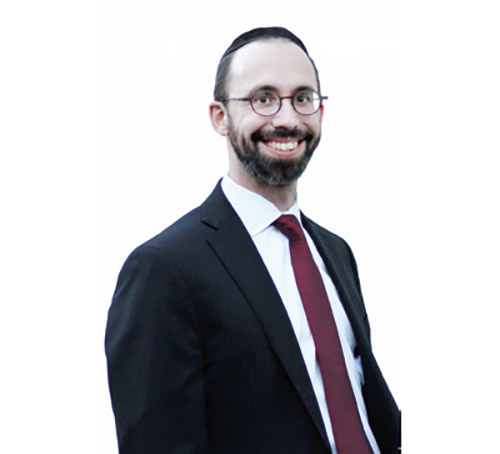
Ezzy and Milt were neighbors in an apartment building. One day, Milt asked Ezzy to tell him why he has a small “case” hanging on his doorpost. Ezzy explained the mezuzah represents God watching over the people who live in the home. Milt was taken aback. “Where can I buy one? Do they sell them in a Judaica store?” It was a strange encounter.
When Milt rang Ezzy’s bell a few days later, Ezzy saw Milt holding a mezuzah case in his hand. “I bought this from the Judaica store downtown. Can you tell me how to hang this up?” Ezzy took a closer look. “Where is the paper that was inside the case?” he asked. “Oh, you mean the instructions? They were all in Hebrew and I can’t read Hebrew. I left it on my kitchen table!” Milt did not realize the special parchment inside the casing, with a paragraph of Shema from the Torah on it, is the real mezuzah. The case is just a holder for the parchment and not even necessary!
Parshas Va’eschanan contains the first paragraph of Shema and we’re told to affix a mezuzah on our doorposts. We’re also instructed to wear tefillin on our arm and head. The Sfas Emes teaches us something remarkable. The tefillin shel rosh (for the head) contains four individual parchments with four different portions of the Torah written on them. The tefillin shel yad (worn on the arm) contains one parchment with the same four portions of Torah written on it. The four parchments of the shel rosh represent the first four books of the Torah. The single parchment in the shel yad represents the fifth book of the Torah—Sefer Devarim. Taken together, the five parchments represent the whole Torah. Just as a Jewish king is commanded to have his own personal sefer Torah to carry with him at all times, each Jew beginning at the time of his bar mitzvah has his own tefillin—a “mini sefer Torah”—that he “carries” with him each day (except for Shabbos and Yom Tov), to remind him of his commitment to Hashem.
The tefillin is different from the mezuzah. The parchment of the mezuzah is essential, while the casing is just a recommended protective cover. However, the boxes of the tefillin that contain the parchment are required and have many laws about the specific material, the construction of the boxes and their straps. Having suitable casing and parchment are essential, as the casing of the tefillin and its straps, although perfectly made, are not kosher without the proper parchment inserted inside them. If the words on the parchments are missing a letter, or if a letter is misspelled, they are disqualified. While the structure of the boxes and the straps are required, the words of Torah inside the boxes are what truly empowers them.
The boxes and the parchments have a parallel to people. The Gemara (Makkos 22) relates that the people in Bavel used to stand when a sefer Torah was carried in shul, but would not rise when a talmid chacham (Torah scholar) walked by. The Gemara points out the foolishness in this behavior, as the talmid chacham is greater than a sefer Torah since he contains and lives his life according to the full direction of the Torah. The talmid chacham is in effect a living sefer Torah!
Every bit of Torah we learn helps create within us a living sefer Torah. We become like the tefillin with the parchments inside. However, in addition to the Torah knowledge we acquire, we must ensure that our behavior is refined and positively reflects one who learns Torah and is a Torah-observant Jew.
Parshas Va’eschanan also contains the giving of the second set of the Aseres Hadibros (“Ten Commandments”). While Hashem fabricated the first luchos (tablet), Moshe was commanded to carve out from stone the second luchos on two separate tablets. With Moshe’s luchos in mind, we must not only instill the Torah within us, but also develop ourselves and our behavior to be a proper “casing” for the words of Torah we have learned. By developing our middos (positive qualities) Hashem will help etch the Torah’s words into us so they are part of our essence. We can then aspire to be a true living sefer Torah.
By Rabbi Baruch Bodenheim
Rabbi Baruch Bodenheim is the associate rosh yeshiva of Passaic Torah Institute (PTI)/Yeshiva Ner Boruch. PTI has attracted people from all over northern New Jersey, including Teaneck, Paramus, Rockaway and Fair Lawn. He initiated and continues to lead a multi-level Gemara-learning program. Recently he has spread out beyond PTI to begin a weekly beis midrash program with in-depth chavrusa learning in Livingston, Fort Lee and a monthly group in West Caldwell. His email is rb@ptiweb.org.









